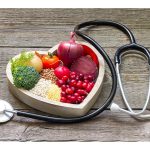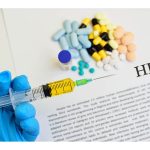
FRIDAY, Jan. 29, 2021 (American Heart Association News) — New federal dietary guidelines encourage Americans to focus more on eating healthy throughout life, to be flexible in their eating patterns and to cut down on empty calories. The recommendations, released every five years by the U.S. Department of Agriculture and the Department of Health and Human Services, are designed to promote nutrition and prevent chronic disease. The guidance influences food and nutrition programs at the federal, state and local levels, and impacts how food companies formulate their products. “The high prevalence of diabetes, cancer and heart disease could be reduced if people ate better,” said Judith Wylie-Rosett, a professor of health promotion and nutrition research at the Albert Einstein College of Medicine in New York City. “Chronic diseases are often related to obesity and poor nutritional habits.” Here are five important takeaways from nutrition experts: There’s flexibility to customize The recommendations emphasize that healthy eating comes in many forms and can be adjusted to fit cultural traditions, personal tastes and different budgets. Swapping out red meat, for example, doesn’t mean people have to force down their least-favorite source of protein. “You can go with a plant-based diet or eat seafood, poultry and legumes rather than red meat,” said Penny Kris-Etherton, a distinguished professor of nutrition at Pennsylvania State University in University Park. The new focus… read on > read on >
























-300x200.jpg)







-300x169.jpg)
